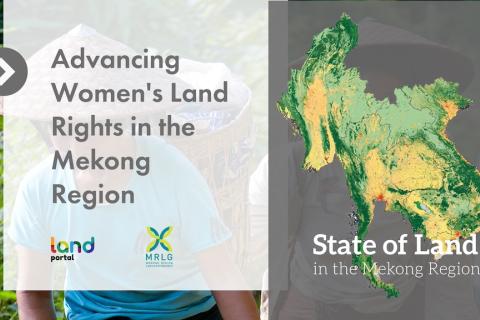Webinar Recap : Women’s Participation in Land Governance in the Mekong - Moving Beyond Quotas to Meaningful Inputs and Influence
This webinar took place on February 15th, 2024, under the title “Women’s Participation in Land Governance in the Mekong : Moving Beyond Quotas to Meaningful Inputs and Influence”. The webinar featured panelists from researchers to youth representatives. The webinar was jointly organized by the Land Portal Foundation and Mekong Region Land Governance (MRLG).


